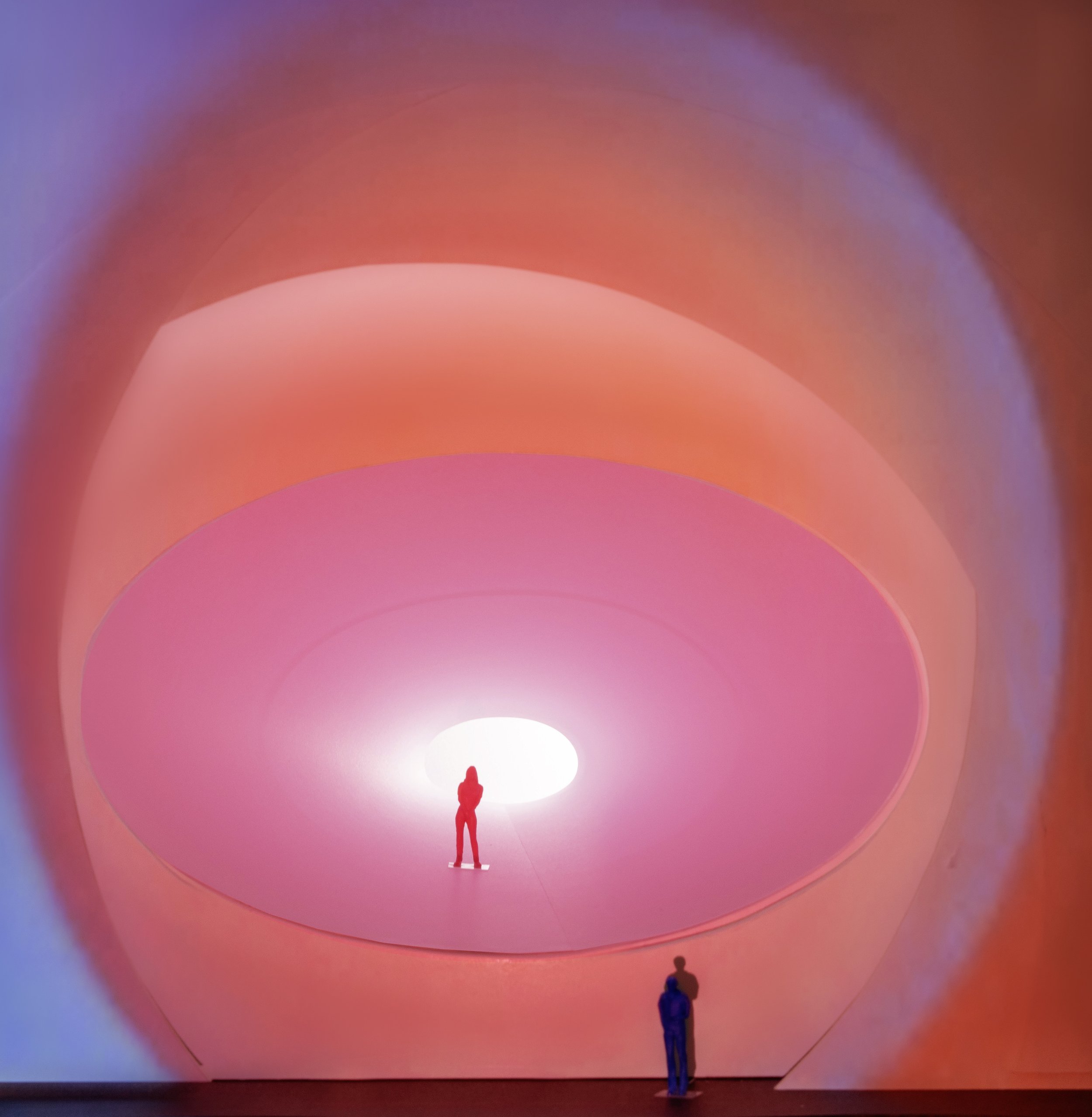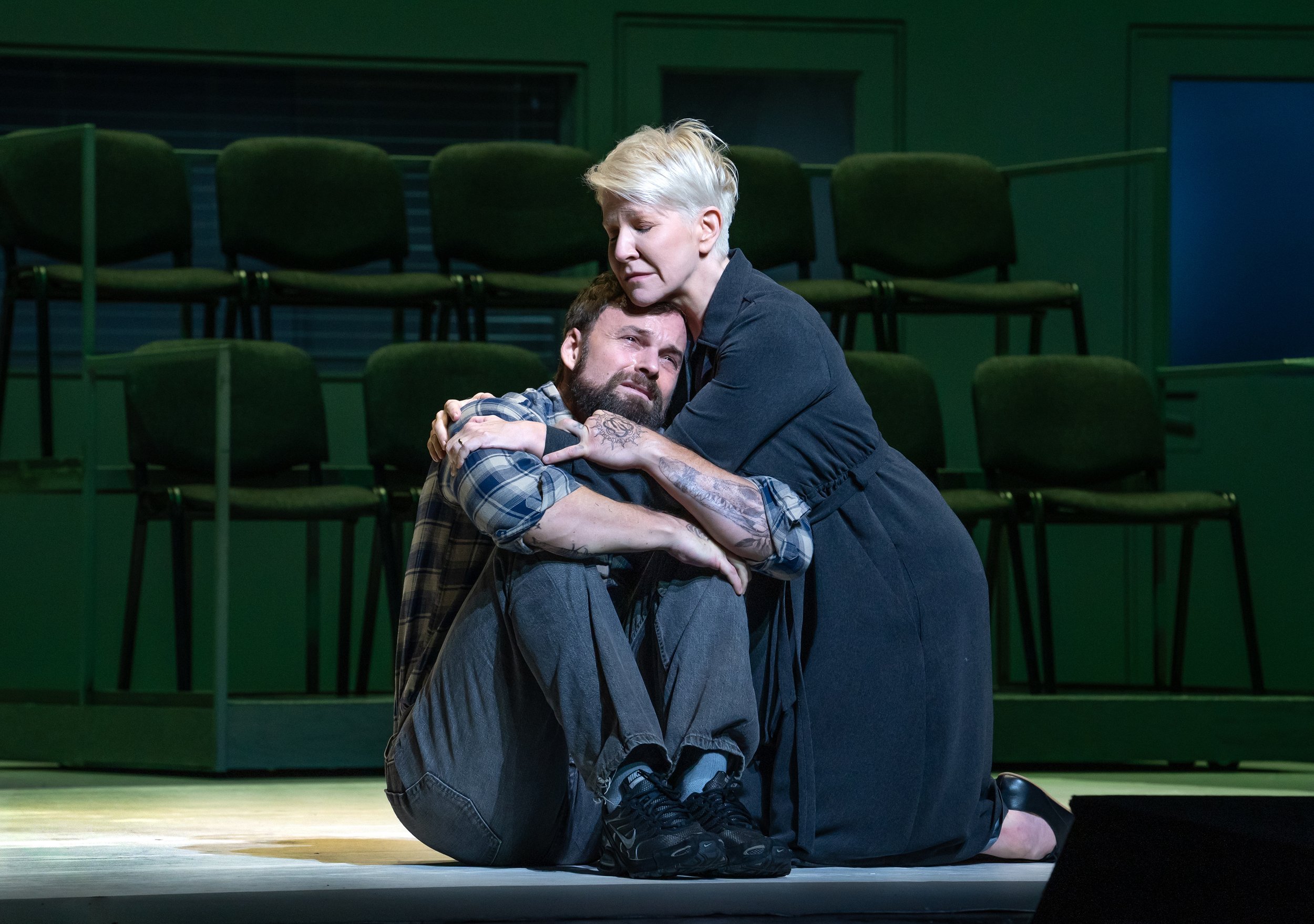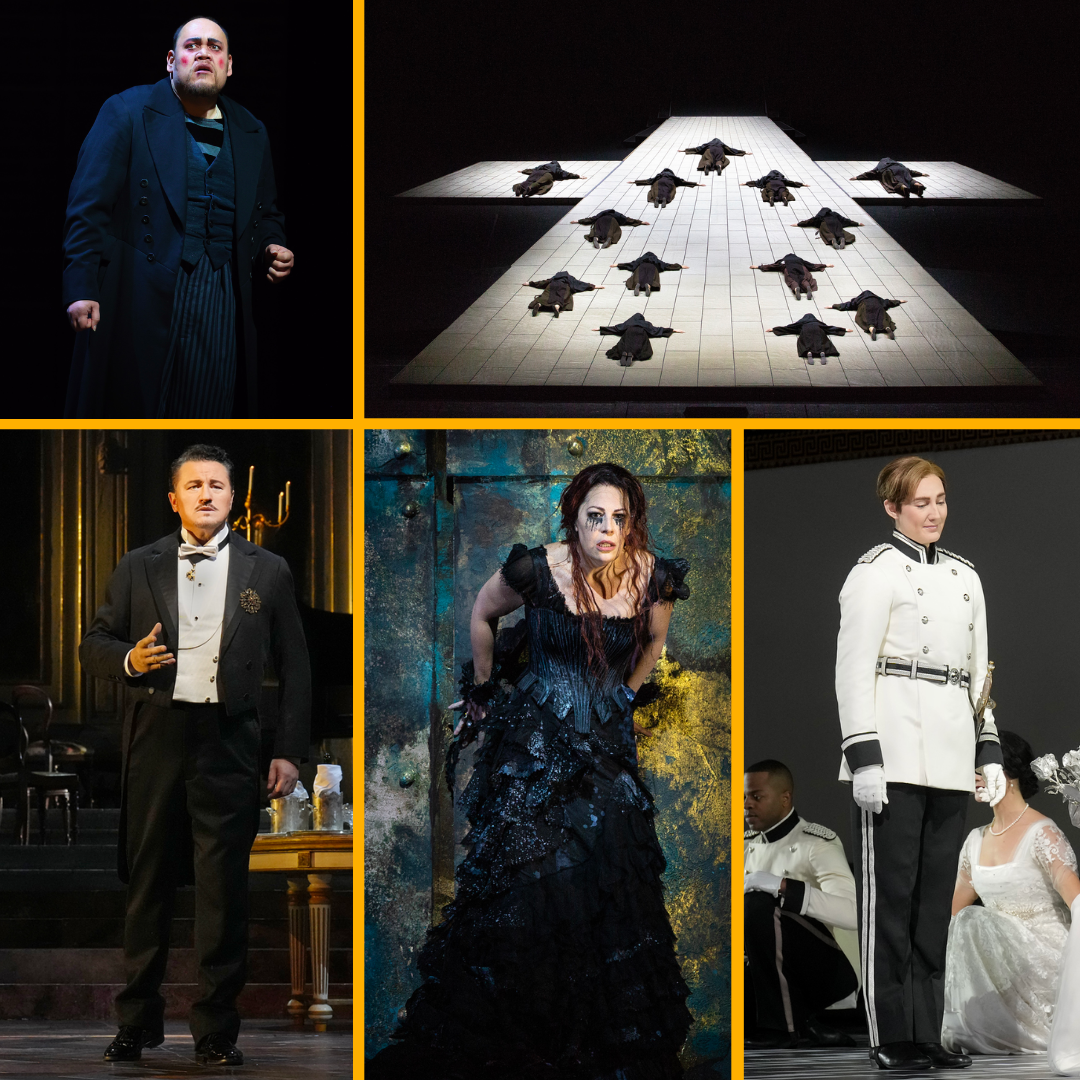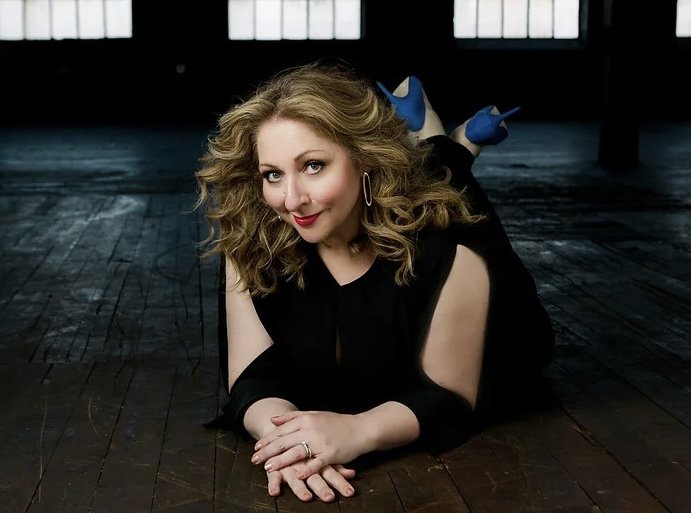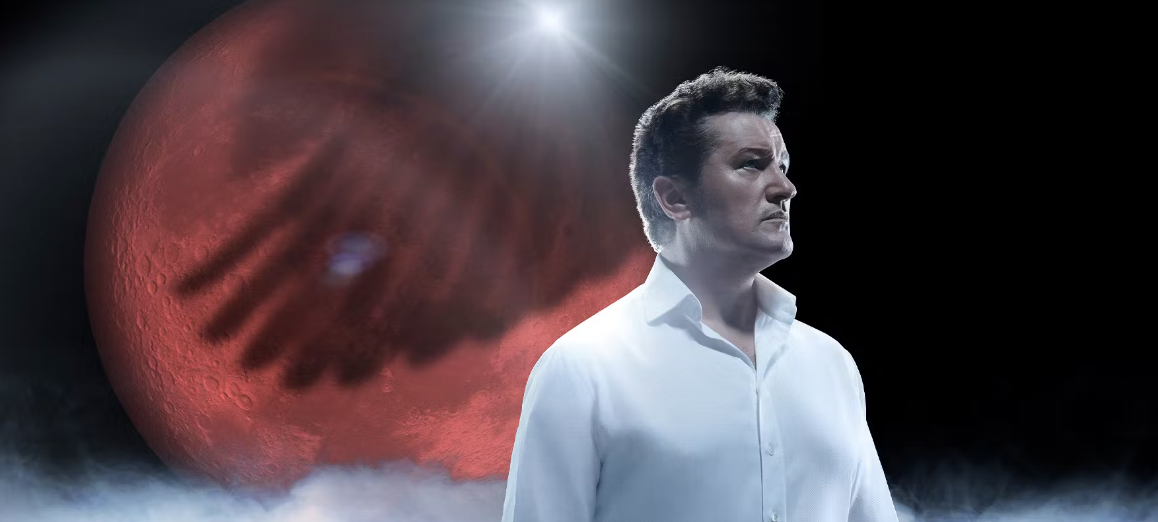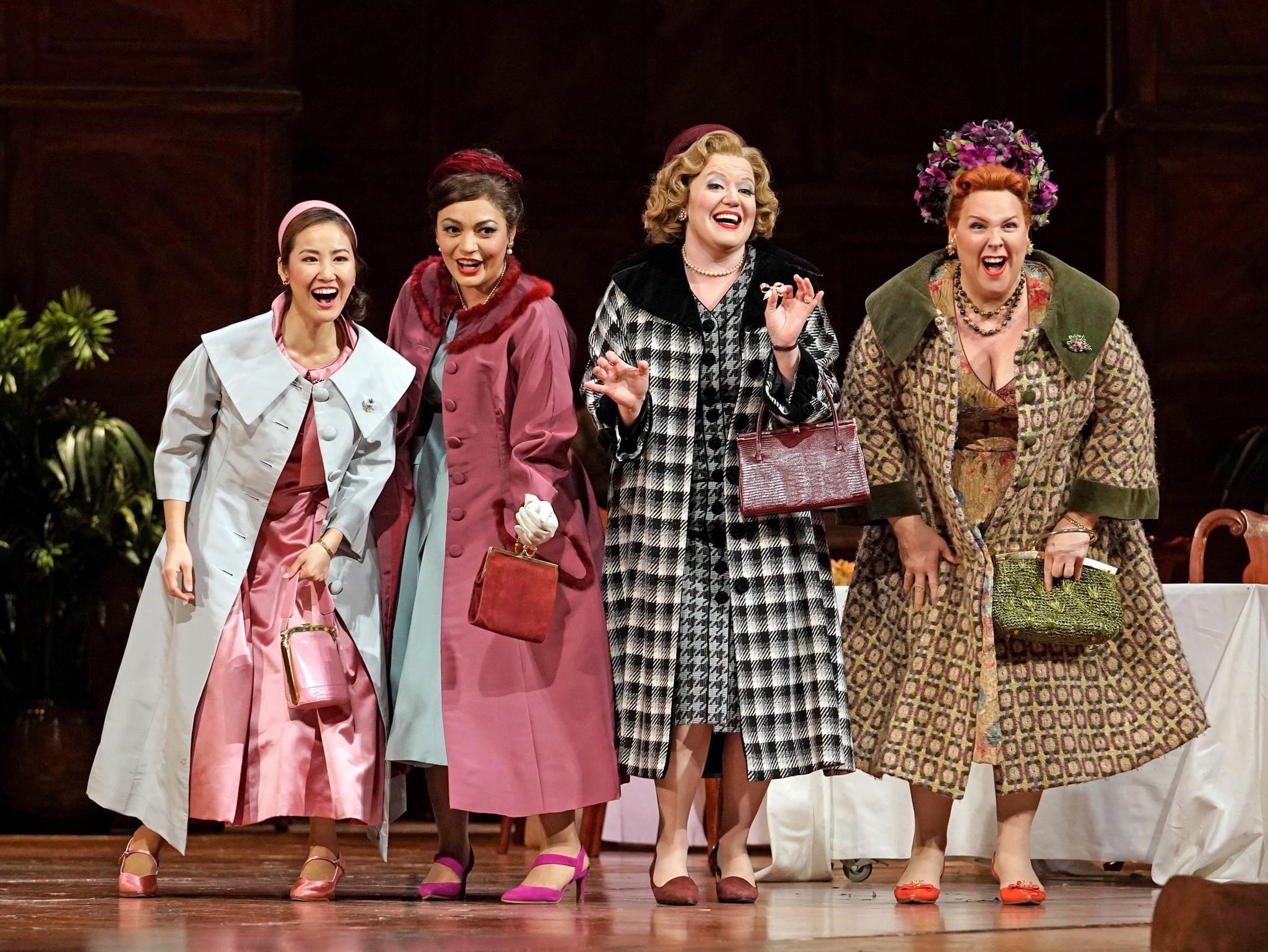My Favorites from the Met’s 2022-23 Season
Center photo: The Metropolitan Opera House lobby (Jonathan Tichler/Met Opera)
Last month, the Met closed out its 2022-23 season, in which they presented 23 operas, including seven new productions, two Mozart operas in one month, two Met premieres, and a whopping five Verdi operas. I attended seven operas (and listened to almost everything over the radio), and found the season beautiful and enriching beyond measure. From what I attended, here are eight of my favorite performances and moments, arranged chronologically. I’d love to hear about your favorites, too! Please tell me in the comments.
A special mention goes to Matthew Polenzani’s Met role debut as Cavaradossi in Tosca, but since I missed his first act due to traffic, I feel unqualified to comment on his performance other than to say that his second and third acts were fantastic.
Joyce DiDonato in The Hours
Joyce DiDonato in The Hours (Evan Zimmerman/Met Opera)
November 22 Virginia Woolf has been portrayed by many of the world’s greatest artists, including Oscar-winning actress Nicole Kidman and prima ballerinas Alessandra Ferri, Natalia Osipova, and Marianela Nuñez. Also, mezzo-soprano Joyce DiDonato, who sang Virginia in the world premiere staging of Kevin Puts’s The Hours at the Met. Joyce was nothing short of breathtaking. Vocally impeccable with stunning intensity and nuance, it felt as though she truly became the troubled writer. Her colorful voice fit the mesmerizing portrayal perfectly, but her face told stories even when she was silent. Virginia’s headaches, homesickness, madness, frustration, genius — Joyce conveyed them all in an achingly vulnerable way that chills and awes me, even seven months later, and nearly made me cry twice. I don’t believe I’ve seen any operatic performance like hers, ever. I wanted to see The Hours again but sadly couldn’t. Happily, it’s returning next year, cast intact, and though the Three Divas (Joyce, Kelli O’Hara, and Renée Fleming) agree that the music will allow many other singers to take on their roles, the only operatic Virginia I want to see is Joyce.
Read more about my night at The Hours: Part 1 | Part 2
Aida’s Act II Finale
A scene from Sonja Frisell’s production of Aida (Marty Sohl/Met Opera)
January 7 matinée The Triumphal Scene is probably my favorite in opera, and the finale, along with the sensation I get when I hear it, is unforgettable. It’s sweeping, thrilling, and spine-tingling. Everyone’s voices join as one, all expressing different thoughts: Aida despairs, Amneris rejoices, Radamès laments, Amonasro plans revenge, and everyone else sings Glory to Egypt or to the gods. I was captivated, both frozen and breathing fast with delight. I normally only cry during sad parts, and this isn’t sad but grand. It’s so glorious, however, that I almost cried. I didn’t actually get around to it, but I had a lump in my throat. Imagine!
Aside from that, Aida was a bittersweet experience because I knew it was the last time I would ever see Sonja Frisell’s magnificent, majestic staging, which played its very last performance on May 17 after 35 years. There may be no other production I love more, and it’s hard to say goodbye. I’m grateful to Michelle Bradley, Brian Jagde, and Olesya Petrova for making the performance such a wonderful memory with their singing.
Sonya Yoncheva in Fedora
Sonya Yoncheva in Fedora (Ken Howard/Met Opera)
January 7 evening With all the hype and her existing superstardom, I knew that Sonya Yoncheva was bound to be good, but she blew my expectations out of Lincoln Center when I saw her as Fedora. The moment she started sobbing on the spoken words “Parla… parla! Rispondi!” (Speak… speak! Reply!) as Fedora’s fiancé (Patrick Cann) lay dead on the bed before her, she earned my utmost respect, both as an actress and as a singer. Her voice is creamy, pleasingly full, and supple, the beauty of her singing giving me chills more than once. One of my favorite aspects of Sonya’s craft is her parlato, like in “Parla, parla, rispondi,” which is always well-placed and often frightening. How she doesn’t lose her voice and instead continues singing like an empress is beyond me. I will also add that she is very convincing at dying, as she should be, given how often she dies! Fedora’s death scene made me sob the second-hardest I’ve ever cried at the Met Opera. That’s saying something. I can hardly wait for her return to New York in spring 2025.
Read more about my night at Fedora: Part 1 | Part 2
The Waltz/Lazinski’s Wig in Fedora’s Act 2
Rosa Feola and Bryan Wagorn in Fedora (Ken Howard/Met Opera)
January 7 evening It was a short moment but had perhaps my favorite melody of the opera: a breezy, bouncy waltz that opened Act 2. As Olga, Rosa Feola lent her exquisite voice to it some minutes later, though with decidedly unromantic words: “I’m a persistent yawn that ruins a kiss and kills joy — don’t ask why!”
Another delightful little touch was the long blond wig Bryan Wagorn wore — “19th-century rock star-style,” he called it — to play the pianist Boleslav Lazinski, “nephew and successor to Chopin”. (The house found that hilarious.) He was frequently tossing his hair, especially when he bowed, when it flopped forward in a comical manner. He should be an honorary Actor!
Read more about my night at Fedora: Part 1 | Part 2
Piotr Beczała in Fedora and Lohengrin
From left: Piotr Beczała in Lohengrin (Marty Sohl/Met Opera) and in Fedora (Ken Howard/Met Opera)
January 7 evening As with Sonya, I was unprepared for just how striking and dramatically effective Piotr Beczała would be. Loris Ipanov in Fedora is a role of big emotions, but Piotr’s compelling acting never became heavy-handed or hammy, even in the most heated moments. His singing was simply superb, most notably his ardent, showstopping rendition of the showstopper aria “Amor ti vieta.” For the blog’s first Girl of the Golden Met Awards, readers voted his Loris the best tenor performance of the Met’s season! Good pick!
April 1 evening In Lohengrin, his persona was quite the opposite, as he displayed an ethereal, otherworldly quality. In both roles, though, he radiated confidence and charisma. The swan knight is tough to imbue with much emotion, but Piotr carried it off as only he can. Lohengrin is “a loser,” Piotr commented; even being perfect, he has no control over events. Unlike his character, however, Piotr seemed to be always in perfect control, right up to the last note. I only hope that my parents will lift the ban on Carmen in time to let me go see him in next season’s new staging. Either way, I know he’ll be hands-down terrific.
Read more about my night at Fedora: Part 1 | Part 2
Read more about my night at Lohengrin
The Merry Wives in Falstaff
From left: Hera Hyesang Park, Marie-Nicole Lemieux, Ailyn Pérez, and Jennifer Johnson Cano in Falstaff (Karen Almond/Met Opera)
April 1 matinée It was impossible not to enjoy myself when the Merry Wives — Ailyn Pérez as Alice, Jennifer Johnson Cano as Meg, Marie-Nicole Lemieux as Mistress Quickly, and Hera Hyesang Park as Nannetta — were onstage, particularly when it was just them. Their scene in the restaurant when Alice and Meg receive Falstaff’s identical letters and plan their revenge was so full of infectious energy, I couldn’t help smiling away.
In Shakespeare’s Twelfth Night, Maria’s plot to humiliate the puritanical Malvolio with a letter is admittedly mean, and we end up feeling sorry for him, but it’s hard not to root for her anyway. Now, one just has to root for the Merry Wives. Jennifer was a sturdy-voiced, hilarious Meg, and Marie-Nicole was a riot, swinging her leg around on meeting Falstaff, smacking a newspaper reader with her coat — and remember, it was thanks to Quickly that Nannetta married Fenton! With her pretty, pure voice, Hera was youthful vivacity itself, and as the ladies’ ringleader, Ailyn spread her beautiful Latina sunniness all over the theater. I wouldn’t mind seeing this dose of pure joy at the Met every season!
Read more about my afternoon at Falstaff
The Horse in Falstaff
April 1 matinée By the start of Act 3, Michael Volle’s Falstaff had been properly “toasted, basted, and roasted” in a sweltering laundry basket, then dumped unceremoniously into the River Thames. Angry and demoralized, he soliloquized about the evil ways of the world to a brown horse, which was munching on a bundle of grass hanging outside its stable door. When Falstaff wandered over to the horse and stroked it, still singing, the horse stopped eating and looked up at him solemnly. It was paying attention, sympathizing! Falstaff walked away, and the horse went back to its grass but soon got tired of stretching its neck out to grab it. So, it yanked a mouthful out vigorously, swinging the grass toward it, ate another mouthful the next time the grass swung back, and on and on. Clever horse!
Read more about my afternoon at Falstaff
Christine Goerke in Lohengrin
Christine Goerke in Lohengrin (Marty Sohl/Met Opera)
April 1 evening Even when playing a pagan witch, not many people can pull off hours of “lurking around and crazy hand gestures” without making it either tiring or ridiculous. Christine Goerke did, however, and threw in some flabbergasting vocal fireworks along the way. She went from a Mozartean soprano to the most mind-blowing Wagner and Strauss roles, and she does them mind-blowingly. Her Ortrud was electric, with huge, blazing sound and riveting drama — this is a very dramatic gal! The way Christine’s displays of emotions could do a 180-degree flip in literal seconds was startling, such as groveling before Elsa one moment and then, the second Elsa was gone, blasting out a wild aria at full volume. (Then, when Elsa came back, groveling again.) She commanded the stage with force, and I would have loved to see a direct face-off between her and Piotr’s Lohengrin, rather than proxy battles through Telramund and Elsa. I can no longer imagine any other Ortrud, so witchy, fierce, and fabulous was Christine. Come back and sing her again here soon! Please!
Read more about my night at Lohengrin










